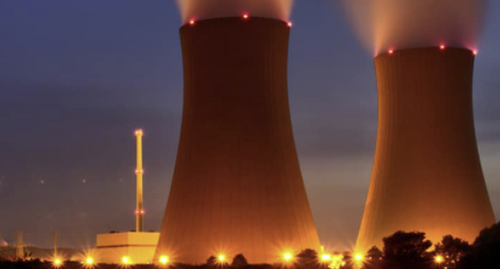We wrote back in early November that Mark Zuckerberg reportedly told Meta workers that plans to build an AI data center powered by nuclear energy were scrapped after rare bees were discovered on the proposed site.
Now it looks like things could be back on track, according to new reporting from Axios, who writes that Meta is joining industry heavyweights like Amazon and Google in exploring nuclear energy as a zero-carbon solution.
Like Microsoft, Amazon and other giants, Meta is making a bold move to embrace nuclear energy as a cornerstone of its sustainability strategy.
The tech giant has issued a sweeping "request for proposals" (RFP) aimed at identifying developers capable of bringing nuclear reactors online by the early 2030s to support its energy-intensive data centers and surrounding communities.
Axios wrote that Meta's RFP targets an ambitious pipeline of new generation capacity ranging from one to four gigawatts. The company seeks partnerships with entities that can streamline the entire lifecycle of nuclear projects—from site selection and permitting to design, construction, and operation.
Urvi Parekh, Meta's head of global energy, underscored the company’s commitment to fostering innovation in nuclear energy. “We want partners who will be there from start to finish,” she said, emphasizing that Meta is prepared to offer long-term support and collaboration to optimize project development.
But Meta's strategy has been a bit different than some other tech giants we have written about. While other tech companies have announced specific deals with emerging nuclear startups, Meta is casting a wider net.
The company is open to a variety of reactor sizes, technologies, and locations, adopting a “geographically agnostic” approach. This flexibility allows Meta to prioritize regions where nuclear projects can be developed most efficiently, even if they are not directly tied to existing data center sites.
Meta is also open to creative partnerships and cost-sharing early in the development process to mitigate the industry’s traditional hesitancy around capital-intensive nuclear investments. Parekh emphasized that Meta’s long-term purchasing commitments aim to provide certainty to developers, accelerating innovation and deployment.
Parekh noted similarities with Meta's early renewable energy initiatives, which required securing buyers for electricity to spur development.
“There were a lot of steps in that process, and there was a lot of need for certainty that there would be someone to buy the electricity on the other side,” she said, drawing parallels between past and present strategies.
And as we have continued to report, accelerating power demand growth from AI data centers has sparked a nuclear power revival in the US:
For those who missed it, in our note "The Next AI Trade" from April of this year, we outlined various investment opportunities for powering up America, most of which have dramatically outperformed the market.
A favorite name of ours has been the Sam Altman-backed Oklo, which we have highlighted as the potential solution to the extreme forthcoming demands in energy as a result of artificial intelligence. It makes nuclear power plants, ranging from 15 MWe to 50 MWe, utilizing liquid metal reactor technology, in soon-to-be everywhere small modular reactors.
